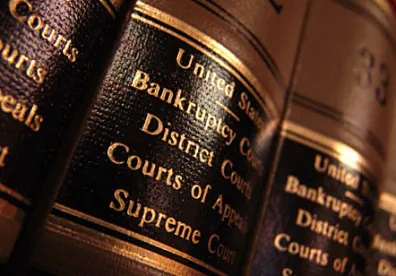On December 22, 2021, Judge Mary Walrath of the Bankruptcy Court for the District of Delaware held in In re The Hertz Corp. that redemption premiums may potentially qualify as unmatured interest, and that, to the extent that such redemption premiums are unmatured interest on unsecured debt, then creditors would only be entitled to receive the federal judgment rate, not the contractual rate of interest.1 The decision departs from a recent decision from the Texas bankruptcy court in the Ultra Petroleum case, which held that unimpaired unsecured creditors of a solvent debtor would be entitled to receive the contractual rate of interest.
Factual Background
In the wake of the COVID-19 pandemic, the Hertz Corporation and its affiliates (the “Debtors”) filed voluntary petitions under chapter 11 of the Bankruptcy Code. During the course of its bankruptcy case, Hertz’s liquidity position improved and thus, under Hertz’s plan of reorganization, all creditors were being paid in full. However, the plan provided that unsecured creditors would receive post-petition interest accruing at the federal judgment rate or at any rate necessary to render creditors unimpaired.2 The federal judgment rate was lower than the default interest provided in the indentures. The plan also provided that prepetition equity holders would receive distributions of cash and equity.3
In July 2021, Wells Fargo Bank, N.A., as indenture trustee for the Debtors’ unsecured senior noteholders, filed an adversary complaint against the Debtors seeking to recover (1) a make-whole premium due under the senior notes (totaling approximately $147 million) and (2) post-petition interest on their claims at the contract default rate in excess of the federal judgment rate (approximately $125 million).4 The Debtors moved to dismiss the complaint.
Discussion
In a comprehensive opinion, the Court granted in part and denied in part the Debtors’ motion to dismiss. Of significance, the Court held that only some of the senior noteholders were entitled to receive a redemption premium under the indentures, that the redemption premiums may potentially qualify as the economic equivalent of unmatured interest (and thus could be subject to disallowance), and that unsecured creditors of a solvent debtor are only entitled to receive post-petition interest at the federal judgment rate.
I. Entitlement to Redemption Premiums
Indentures and credit agreements may require a borrower to pay a prepayment or redemption premium to “protect the lenders’ right to a yield that was expected at the time that they made their loans.”5 A redemption premium thus refers to the repayment of a debt at or before its maturity date at a certain percentage above its face value, which in certain circumstances may compensate the lender or noteholder for lost interest as a result of the early redemption of the debt.6
The Court first addressed whether the senior noteholders were entitled to redemption premiums. The Debtors moved to dismiss the complaint on the grounds that the redemption premiums were not payable under the express language of the indentures because the acceleration provisions (which were triggered automatically upon the Debtors’ filing) in the indentures did not provide for the payment of redemption premiums. However, the Court rejected the Debtors’ arguments that the indentures did not provide for the payment of a redemption premium upon automatic acceleration by virtue of the bankruptcy filing. Relying on the Third Circuit’s decision in Energy Future Holdings, the Court held that the applicable contractual provision for determining the noteholders’ entitlement to redemption premiums was the specific redemption provision, not the automatic acceleration provision.7
Therefore, turning to the express language of the redemption provisions, the Court determined that some—but not all—of the noteholders were entitled to receive a redemption premium. Specifically, the Court held that holders of certain senior notes (the “2022/2024 Notes”) were not entitled to a redemption premium because the applicable redemption provisions only provided for redemption “prior to maturity thereof at the applicable redemption price set forth below.”8 Given that the redemption provision referred to an undefined term for maturity of the debt, the Court held that no redemption premium was due on the 2022/2024 Notes because the notes matured as a result of the bankruptcy filing.9 In other words, because the bankruptcy filing and not the stated maturity date triggered maturity under the terms of the indenture, no such right to any redemption premium existed post-petition.
By contrast, the Court held that holders of other senior notes (the “2026/2028 Notes”) were entitled to a redemption premium under the express language of their indenture, which differed from that of the 2022/2024 Notes. The redemption provisions for the 2026/2028 Notes provided that “[a]t any time prior to [a specified date], the [senior notes] may also be redeemed (by the Company or any other person) in whole or in part, at the Company’s option, at . . . the Redemption Price . . . .” The Court read this provision to “simply [provide] the Debtors with the ability to redeem under the circumstances” specified in that provision, and notably did not contain the requirement that redemption must occur before maturity. Because the bonds were redeemed prior to the dates specified in the redemption provision, the Court found that, unlike the 2022/2024 noteholders, the 2026/2028 noteholders stated a plausible claim for relief as to the 2026/2028 noteholders’ entitlement to a redemption premium.10
II. Is the Redemption Premium the Equivalent of Unmatured Interest?
The Court next addressed the Debtors’ contention that the redemption premium should be disallowed as unmatured interest under section 502(b)(2) of the Bankruptcy Code. Section 502(b)(2) of the Bankruptcy Code provides that a claim is disallowed “to the extent that . . . such claim is for unmatured interest.” Notably, “unmatured interest” is not defined in the Bankruptcy Code, but rather has been interpreted by courts to include post-petition interest and contractual charges that are the “contractual equivalent” of future interest.11
The Court noted that while the Third Circuit in Energy Future Holdings did characterize a redemption premium as the “contractual substitute for interest lost on Notes redeemed before their expected due date,”12 it was not addressing the issue in the context of section 502(b)(2) disallowance.13 Further, the Court discussed the decision in Ultra Petroleum, where the Fifth Circuit noted that a make-whole premium could be considered unmatured interest and remanded to the bankruptcy court to determine the issue.14 On remand, the Bankruptcy Court for the Southern District of Texas concluded that the make-whole premium was not the economic equivalent of unmatured interest and not disallowed under Section 502(b)(2).15 This decision is currently on appeal.
When deciding whether a contractual charge is unmatured interest, “courts look to the economic substance of the transaction to determine what counts as interest.”16 In Hertz, the Court concluded that to determine whether the redemption premium is the economic equivalent of unmatured interest is not a legal question, but a factual one.17 Put another way, simply characterizing the makewhole claim as liquidated damages, breach of contract damages, or another separate contract right could avoid the effect of section 502(b)(2) in the hands of an astute drafter. In practice, a contract could provide that upon default or redemption, “all unmatured interest” would be immediately due and payable, therefore avoiding Bankruptcy Code section 502(b)(2) disallowance in contravention of the Bankruptcy Code.
In considering the redemption premium provision here, the Court found it significant that the premium is calculated on the present value of unmatured interest due as of the redemption date, but left the door open for the noteholders to introduce evidence to the contrary. The Court thus denied the Debtors’ motion to dismiss the noteholders’ claim that it must pay a redemption premium on the 2026/2028 Notes.18
III. Unsecured Creditors of a Solvent Debtor May Only Receive Interest at the Federal Judgment Rate
Finally, the Court addressed which interest rate would apply to the redemption premium. Section 1124 of the Bankruptcy Code provides that a claim is unimpaired if, among other things, the plan “leaves unaltered the legal, equitable, and contractual rights” of the holder of that claim.19 However, section 502(b)(2) provides for the disallowance of any unmatured interest.20 Whether a claim is impaired has significant implications: creditors that are impaired generally are entitled to certain rights in the context of plan confirmation, including (i) the right to vote to accept or reject the plan and (ii) the right to receive consideration equal to what the creditor would have received in a hypothetical chapter 7 liquidation.21
The noteholders contended that because the plan designated senior noteholders as unimpaired for purposes of section 1124 of the Bankruptcy Code (which provides that a class of claims or interests is impaired under a plan unless the plan leaves such class’s legal, equitable, and contractual rights to such claims or interests unaltered), the noteholders should be entitled to receive interest at the contract rate. On the other hand, the Debtors argued that because it was section 502(b)(2) of the Bankruptcy Code that disallowed unmatured interest, rather than the Debtors’ plan, the senior noteholders’ claim was unimpaired under Third Circuit precedent.22 The Court ruled in favor of the Debtors, holding that unsecured creditors “are not impaired within the meaning of section 1124(1)” because the senior noteholders’ claim to unmatured interest or the redemption premium was modified by section 502(b)(2) of the Bankruptcy Code, and not the Debtors’ plan.23
Nevertheless, the noteholders argued that they were entitled to their contract rate of interest because “the Debtors are awash in cash, paid all creditors in full, and provided a substantial return on investment to equity.”24 The Court acknowledged that prior to the enactment of the Bankruptcy Code, courts applied a “solvent debtor” exception. This exception provided that the contractual rights of unimpaired creditors must be preserved in bankruptcy when a debtor is solvent. The Court found, however, that “the solvent debtor exception survived the passage of the Bankruptcy Code only to a limited extent.”25 Indeed, the Court noted that Congress expressly codified the solvent debtor exception in two sections of the Bankruptcy Code: section 506(b) (which provides for payment of post-petition interest to oversecured creditors)26 and section 726(a)(5) as to impaired unsecured creditors.
However, the Bankruptcy Code “is silent on what treatment unimpaired creditors must receive in a solvent chapter 11 debtor case.”27 The Court found that nothing in the express text of the Bankruptcy Code or in its legislative history required the payment of post-petition interest at the contract rate of interest. Thus, the Court held that even if the solvent debtor exception survived the enactment of the Bankruptcy Code, the Bankruptcy Code did not specify what interest rate would be required to establish that an unsecured creditor is unimpaired. The Court noted that Congress could have provided a solvent debtor exception for unimpaired unsecured claims by (i) excepting unmatured interest from disallowance under section 502(b) when the debtor is solvent or (ii) by amending section 1124 to provide that unimpaired creditors must receive their contract rate of interest, in addition to payment in full of their allowed claim. But Congress created neither exception.
Due to the lack of guidance from the text of the Bankruptcy Code, courts have remained split on the applicable “legal rate” of interest for unimpaired unsecured creditors in a solvent chapter 11 debtor case. Some courts have held that unsecured creditors are entitled to receive post-petition interest at the “contract rate,” meaning the interest rate specified in the prepetition contract (or if there is no contract, the interest rate specified under state law).28 However, other courts have held that creditors of a solvent debtor are only entitled to receive interest at the federal judgment rate, which is typically lower than the contract rate.29
The Court concluded that the federal judgment rate was the appropriate applicable rate of interest in Hertz. In support of its conclusion, the Court noted that neither the Bankruptcy Code nor its legislative history indicated any intent for unimpaired unsecured creditors of a solvent debtor to receive better treatment than impaired unsecured creditors.30 The Court thus found no basis to distinguish between unimpaired and impaired unsecured creditors in a solvent debtor case.31 Pursuant to sections 1129(a)(7) and 726(a)(5) of the Bankruptcy Code,32 impaired unsecured creditors in a solvent debtor chapter 11 case are entitled to receive post-petition interest at the federal judgment rate. Specifically, section 726(a)(5) requires payment of interest at the “legal rate” before any distributions to equity holders can be made, and section 1129(a)(7) provides that with respect to each impaired class of claims or interests, creditors are entitled to receive what they would have received in a liquidating chapter 7 case.
The Court noted that adopting a uniform rule to apply to all unsecured creditors regardless of whether they are impaired provides more certainty and fairness in bankruptcy cases. The Court stated that providing that “all general unsecured creditors are entitled to the same post-petition interest in a solvent chapter 11 debtor case prevents a debtor from paying preferred creditors more than others simply by classifying them as unimpaired.”33 While the noteholders complained that designation of their claims as unimpaired deprived them of the right to vote on the plan, the Court found that the noteholders’ impairment would not have resulted in different treatment. Specifically, the Court stated that if the noteholders “had been treated as impaired and if they had voted against the Plan, they would have received the same treatment: payment in full in cash of their allowed claim plus post-petition interest in accordance with sections 1129(a)(7) and 726(a)(5).”34 In other words, the noteholders would have still received interest at the federal judgment rate.
The Court thus rejected the noteholders’ reliance on the Texas bankruptcy court’s decision in Ultra Petroleum. In that case, the Texas bankruptcy court held that the Bankruptcy Code did not abolish the solvent debtor exception and that the solvent debtor exception would require payment of default interest provided in the contracts. The Ultra Petroleum court’s decision hinged on its determination that unimpaired creditors were entitled to have their equitable rights fully enforced under section 1124(1) in a “solvent debtor” case.35 Judge Walrath did not find this reasoning persuasive because “[a] bankruptcy court cannot use equitable principles to modify express language of the Code,” such as section 502(b)(2), which “expressly disallows claims of unsecured creditors for unmatured interest.”36 The Debtor’s solvency, according to the Court, does not “waive the application of section 502(b)(2).”37 Therefore, the Court concluded that the noteholders failed to state a plausible claim that the Debtors must pay post-petition interest on the senior notes at the contract rate rather than at the federal judgment rate and dismissed this count in the noteholders’ complaint.
Conclusion
Judge Walrath’s decision in Hertz confirms that under Third Circuit precedent, it is the applicable redemption provision—not the acceleration provision—that is determinative as to a creditor’s entitlement to receive a redemption premium in bankruptcy. Where, as with the 2026/2028 noteholders in Hertz, the entitlement to receive a premium is not dependent on a redemption occurring prior to a maturity date, then creditors may be entitled under their contracts to receive the redemption premium in bankruptcy. By contrast, as with the 2022/2024 noteholders, if the redemption premium is dependent on the redemption occurring prior to the maturity date and the indenture provides for automatic acceleration upon a bankruptcy filing, then a court could conclude, as the Court did here, that the creditors are not entitled to the redemption premium under the express language of the governing agreements.
Judge Walrath’s decision also underscores the split among courts as to the proper treatment of unimpaired unsecured creditors in a solvent chapter 11 case. Consistent with a recent decision in the PG&E case in California,38 Judge Walrath held that both impaired and unimpaired unsecured creditors in a solvent chapter 11 debtor case are entitled to receive the federal judgment rate, not the contractual rate of interest. The Hertz decision thus conflicts with the Ultra Petroleum decision in Texas, which held that unimpaired unsecured creditors of a solvent debtor are required to receive their contractual default rate of interest.
Unimpaired unsecured creditors of a solvent debtor should therefore be mindful that this is an evolving issue in bankruptcy that remains unsettled and can vary among courts and districts. Even where a debtor is solvent and has sufficient liquidity to pay post-petition interest, a court may conclude that an unsecured creditor of a solvent debtor may only be entitled to post-petition interest at the federal judgment rate, which likely is substantially lower than the default rate of interest.
1 Wells Fargo Bank, N.A. v. The Hertz Corp. (In re The Hertz Corp.), Adv. No. 20-11218 (MFW), 2021 WL 6068390, at *3 (Bankr. D. Del. Dec. 22, 2021).
2 Id. at *2.
3 Id.
4 Id. at *3.
5 See In re Chemtura Corp., 439 B.R. 561, 596 (Bankr. S.D.N.Y. 2010).
6 See In re MPM Silicones LLC, 874 F.3d 787, 802 (2d Cir. 2017).
7 In re The Hertz Corp., 2021 WL 6068390, at *3 (citing In re Energy Future Holdings Corp., 842 F.3d 247 (3d Cir. 2016)).
8 Id. at *5.
9 Id. at **5-6.
10 Id. at *7.
11 Id. at n.11.
12 In re Energy Future Holdings Corp., 842 F.3d at 251; see also In re MPM Silicones, 874 F.3d, 787, 802 (2d Cir. 2017) (noting that a make-whole premium “was intended to ensure that the Senior-Lien Note holders received additional compensation to make up for the interest they would not receive if the Notes were redeemed prior to the maturity date.”).
13 In re Energy Future Holdings Corp., 842 F.3d at 251, 253 n.1.
14 In re Ultra Petroleum Corp., 943 F.3d 758, 765 (5th Cir. 2019).
15 In re Ultra Petroleum Corp., 624 B.R. 178, 188-95 (Bankr. S.D. Tex. 2020).
16 In re Doctors Hosp. of Hyde Park, Inc., 508 B.R. 697, 705 (Bankr. N.D. Ill. 2014).
17 In re The Hertz Corp., 2021 WL 6068390, at *8.
18 Id.
19 11 U.S.C. § 1124(1).
20 Id. § 502(b)(2).
21 See 11 U.S.C. §§ 1129(a)(7), 1126.
22 In re PPI Enters. (US), Inc., 324 F.3d 197, 204 (3d Cir. 2003) (holding that a creditor is unimpaired if it is the effect of the Bankruptcy Code that modifies its rights, not the debtor’s plan).
23 In re The Hertz Corp., 2021 WL 6068390, at *11.
24 Id.
25 Id. at *16.
26 Id.
27 Id. at *11.
28 See, e.g., In re Dow Corning Corp., 456 F.3d 668 (6th Cir. 2006) (“When a debtor is solvent, then, the presumption is that a bankruptcy court’s role is merely to enforce the contractual rights of the parties, and the role that equitable principles play in the allocation of competing interest is significantly reduced.”).
29 See, e.g., In re Cuker Interactive, 622 B.R. 67, 71 (Bankr. S.D. Cal. 2020) (“[A]ssuming the Creditors are unsecured, they must receive postpetition interest at the Federal Judgment Rate to be unimpaired by the Plan.”); In re PG&E, 610 B.R. 308, 312-313 (Bankr. N.D. Cal. 2019) (holding that unimpaired unsecured creditors are only entitled to receive post-petition interest at the federal judgment rate).
30 In re The Hertz Corp., 2021 WL 6068390, at **11-13.
31 Id. at *14 (distinguishing Dow Corning, 456 F.3d at 678-80 because its ruling was premised on section 1129(b), which considers the rights of impaired creditors, not unimpaired creditors, in a solvent chapter 11 debtor case).
32 See 11 U.S.C. § 726(a)(5) (providing payment of post-petition interest at “the legal rate” to creditors, before any distribution to the debtor (or equity), in the event there are funds left after paying all other claims in a chapter 7 liquidation case); id. § 1129(a)(7) (providing that with respect to each impaired class of claims or interests, each holder of such claim has either accepted the plan or will receive at least what it would have received in a liquidating chapter 7 case).
33 In re The Hertz Corp., 2021 WL 6068390, at *17.
34 Id. at *16.
35 See In re Ultra Petroleum Corp., 624 B.R. 178, 196 (Bankr. S.D. Tex. 2020).
36 In re The Hertz Corp., 2021 WL 6068390, at *15.
37 Id.
38 In re PG&E Corp., 610 B.R. 308 (Bank. N.D. Cal. 2019).







 />i
/>i

